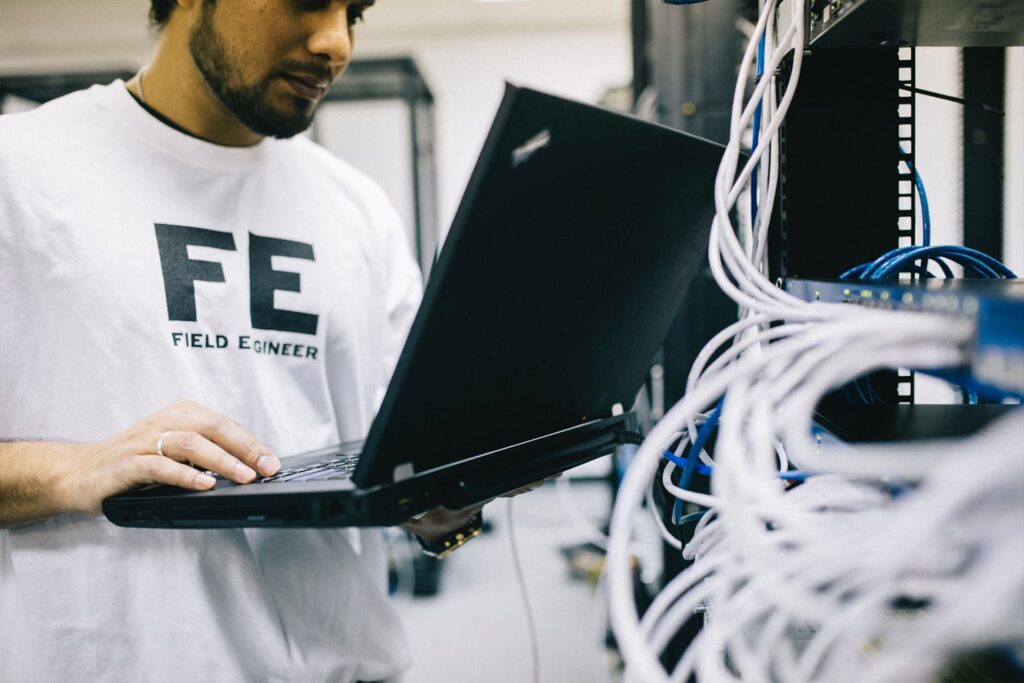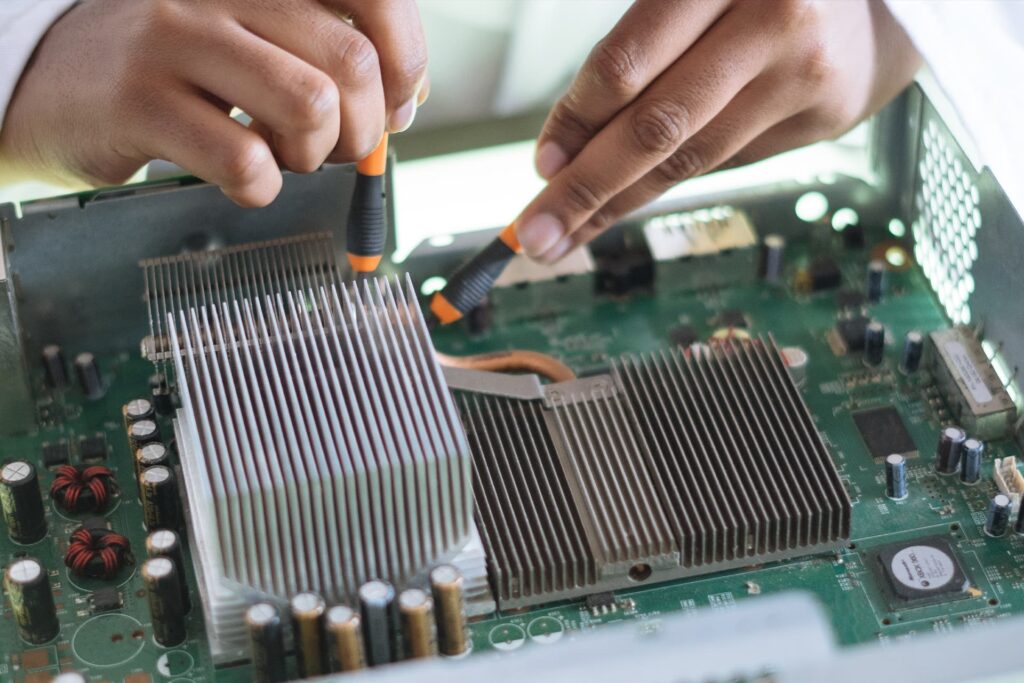
Electrical and Computer Engineering | Evening Classes
Electrical and Computer Engineering | Evening Classes
Programme Introduction
This programme aims at training engineers with high scientific, technical, ethical and professional qualifications in the various areas of intervention of Electrical and Electronic Engineering. For this, it aims at developing skills that enable graduates to conceive, design, execute and manage work or projects in the areas of energy, automation, robotics, electronics, telecommunications, and computer systems.
This study cycle is predominantly professional, will have evening classes, and will be mainly aimed at working students whose objective is to broaden and deepen their skills. It will be characterized not only by a high diversity of content, but also by a study plan which will be suited to students’ availability. This training, framed within the national and international aim of training adults, is part of an area with a high rate of employability.
Programme Coordinator
Luís Miguel Moreira Mendes
lmendes@ipleiria.pt
School
City
Language
Type
Length
Vacancies
General contingent: 20
DGES certification

Objectives
This study cycle intends to provide students with the necessary knowledge to carry out activities related to:
- electrical installations;
- energy systems;
- automation;
- industrial robotics;
- computer systems;
- telecommunications;
- analogue and digital electronics.
Graduates will be able to apply the knowledge acquired in these areas in the labour market and actively respond to the demands of new technologies.
The study plan will allow graduates to be able to develop work of high technical, scientific, ethical and professional quality, and enable them with skills for innovation and entrepreneurship.
Careers Options
The development of skills, solidly based on advanced level knowledge and understanding skills in the field of Electrical and Electronic Engineering, will allow graduates to manage and supervise production processes and work teams, and the autonomy for lifelong learning.

Study Plan
- 1. Year | Common-Core Syllabus
- 2.Year | Common-Core Syllabus
- 2. Year | Branch of Energy and Automation
- 2. Year | Branch of Electronics and Computers
- 3.Year | Common-Core Syllabus
- 3. Year | Branch of Energy and Automation
- 3.Year | Branch of Electronics and Computers
- 4.Year | Common-Core Syllabus
- 4. Year | Branch of Energy and Automation
- 4.Year | Branch of Electronics and Computers
| ID | Name | Semester | ECTS | Length |
|---|---|---|---|---|
| Mathematical Analysis | 1S | 6 | 75 h | |
|
1 Differential calculus in R | ||||
| Linear Algebra | 1S | 5 | 60 h | |
| ||||
| Digital Systems | 1S | 5 | 75 h | |
| ||||
| Physics I | 1S | 6 | 75 h | |
| ||||
| Applied Mathematics | 2S | 6 | 60 h | |
|
1.Functions defined in time
| ||||
| Computer Programming I | 2S | 6 | 67,5 h | |
| ||||
| Electric Circuits I | 2S | 6 | 60 h | |
|
1.Definitions of basic electrical quantities | ||||
| Physics II | 2S | 4 | 60 h | |
|
1.1.4 Electric potential
| ||||
| ID | Name | Semester | ECTS | Length |
|---|---|---|---|---|
| Computer Programming II | 1S | 6 | 60 h | |
| ||||
| Electric Circuits II | 1S | 6 | 52,5 h | |
| ||||
| English | 1S | 2 | 30 h | |
| ||||
| Eletronics I | 1S | 5 | 90 h | |
|
Semiconductors, diodes and applications | ||||
| Eletrical and Telecommunications Infrastructures | 1S | 5 | 45 h | |
| ||||
| Statistics | 2S | 3 | 45 h | |
|
1 Probability distributions | ||||
| Automatic Systems | 2S | 5 | 60 h | |
|
Automatic systems: introduction, advantages and advantages, structure, specification, project methodology (logical, space stats and GRAFCET). | ||||
| Electronics II | 2S | 5 | 66 h | |
| ||||
| Communication Networks | 2S | 5 | 52,5 h | |
| ||||
| ID | Name | Semester | ECTS | Length |
|---|---|---|---|---|
| Electrical Instalations I | 2S | 5 | 75 h | |
| ||||
| ID | Name | Semester | ECTS | Length |
|---|---|---|---|---|
| Fundamentals of Telecommunication | 2S | 5 | 67,5 h | |
| ||||
| ID | Name | Semester | ECTS | Length |
|---|---|---|---|---|
| Control Systems | 1S | 5 | 60 h | |
|
1.Introduction to control systems | ||||
| Microprocessors | 1S | 5 | 69 h | |
| ||||
| Instrumentation | 1S | 4 | 60 h | |
| ||||
| Instrumentation and Control Laboratory | 2S | 5 | 45 h | |
|
The content of the course consists of the several stages to be performed during the development of a global data | ||||
| Power Electronics | 2S | 5 | 60 h | |
|
1 – Power Semiconductor Devices | ||||
| Seminar | 2S | 3 | 30h | |
|
Holding of 12 seminars. These cover topics ranging from Robotics, Industrial Automation, Instrumentation, Impact of | ||||
| ID | Name | Semester | ECTS | Length |
|---|---|---|---|---|
| Industrial Automation I | 1S | 5 | 60 h | |
| ||||
| Electrical Installations II | 1S | 5 | 75 h | |
|
1 – Transients in networks of distribution of electricity; | ||||
| Electrical Machines I | 2S | 5 | 67,5 h | |
| ||||
| Industrial Automation II | 2S | 5 | 60 h | |
| ||||
| ID | Name | Semester | ECTS | Length |
|---|---|---|---|---|
| Programmable Electronics | 1S | 5 | 60 h | |
|
1.Introduction to Programmable Logic Devices | ||||
| Mobile Devices Programming | 1S | 5 | 75 h | |
| ||||
| Electronic Systems for IoT | 2S | 5 | 60 h | |
| ||||
| Signal Analysis and Processing | 2S | 5 | 75 h | |
| ||||
| ID | Name | Semester | ECTS | Length |
|---|---|---|---|---|
| Project in Electrical and Computer Engineering | Annual | 15 | 75 h | |
|
The work plan is defined in the initial meeting between supervisor(s) and student group. | ||||
| Innovation and Entrepreneurship | 2S | 2 | 30 h | |
| ||||
| ID | Name | Semester | ECTS | Length |
|---|---|---|---|---|
| Energy Managment | 1S | 5 | 60 h | |
|
1 – THE WORLD ENERGY SITUATION. | ||||
| Electrical Machines II | 1S | 5 | 75 h | |
|
1- Induction or Asynchronous machine
| ||||
| Electric Power Generation, Transmission and Distribution | 1S | 5 | 75 h | |
| ||||
| Renewable Energies | 2S | 5 | 60 h | |
|
Key technologies for exploitation of renewable energy (Solar, Wind, Geothermal, Mares, Small Hydro, Micro Hydro, | ||||
| Robotics and Computer Vision | 2S | 5 | 75 h | |
| ||||
| ID | Name | Semester | ECTS | Length |
|---|---|---|---|---|
| Sensor Networks | 1S | 5 | 75 h | |
|
1.Introduction to sensor networks; | ||||
| Embebed Computing Systems | 1S | 5 | 60 h | |
| ||||
| Digital Communications | 1S | 5 | 75 h | |
| ||||
| Mobile Communications | 2S | 5 | 75 h | |
|
Fundamentals of wireless transmission | ||||
| Broadband Networks | 2S | 5 | 60 h | |
| ||||
Entry Requirements
For further information about international students’ applications,
please see International Applicants
or contact the International Students’ Office by email at: estudante.internacional@ipleiria.pt
For further information about international students’ applications,
please see International Applicants
or contact the International Students’ Office by email at: estudante.internacional@ipleiria.pt
Accreditation
State: Accredited
Number of years of accreditation: 6
Publication Date: 23/06/2022
A3ES Accreditation (updating)
State: Accredited
Number of years of accreditation: 6
Publication Date: 23/06/2022
A3ES Accreditation (updating)
Application Fee
60€
60€
Enrolment Fee
General contingent: 30€
International student contingent: 500€
General contingent: 30€
International student contingent: 500€
Tuition Fee
General contingent: 523€
International student contingent: 2 250€
General contingent: 523€
International student contingent: 2 250€